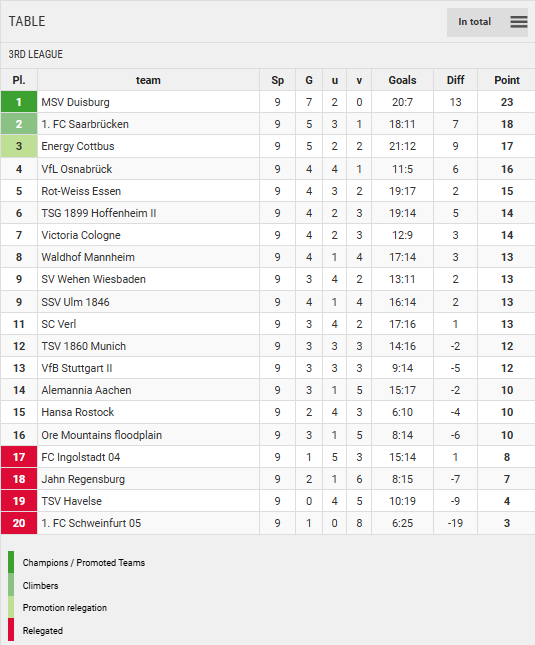Rot-Weiss Essen is fighting back against the lengthy suspension facing veteran player Klaus Gjasula following his sending-off in Mannheim.
Klaus Gjasula’s red card in the match against Waldhof Mannheim is still causing heated debate several days later. The Rot-Weiss Essen midfielder was sent off even though he did not fully make contact with his opponent Kennedy Okpala. And, as this editorial team has learned, the veteran could be suspended by the DFB for four championship games following his sending off. In addition, the 35-year-old is to pay a fine of €1,000 for his criticism of the referee in an interview with “Magenta Sport.”
This penalty was demanded and requested by the DFB Control Committee. Rot-Weiss Essen is opposed to the amount of the penalty and has lodged an appeal against the demand. RWE sporting director Christian Flüthmann was asked about the issue during the half-time break in Rot-Weiss Essen’s game against TSG Hoffenheim II (3-1) on Wednesday evening. “It’s still an ongoing case. Two games are for the foul, two for the touching. The interview plays no role in the penalty. We have lodged an appeal and will see what comes of it,“ Flüthmann said in an interview with ”Magenta Sport.”

Gjasula made headlines nationwide with his emotional interview after Essen’s 1-6 defeat in Mannheim. Gjasula was extremely upset that he was sent off with a straight red card in the 68th minute. His anger was understandable, as it was a wrong decision. The midfielder then called for penalties for referees. “If a worker screws up, he gets punished by his employer. It has to be the same for referees,” ranted the 35-year-old RWE pro. When asked about his player’s statement, Flüthmann explained: “After a game like this, you can understand certain statements that are made in the heat of the moment. The fact is that we are obviously not happy with the decision and still believe that it was wrong.”
The 43-year-old defended Gjasula: “I think Klaus Gjasula would not make many of the statements he made in isolation now. But essentially, you can understand it. He also says that you shouldn’t immediately show a red card for every situation.”
It is now important to discuss objectively whether such long suspensions, which – as in this case – are based on incorrect factual decisions, should continue to be imposed in the future. Flüthmann: “These are decisions that turn out to be wrong in hindsight. What happens then? We may have to find a solution because there is no video assistant and a decision cannot be corrected during the game.”
